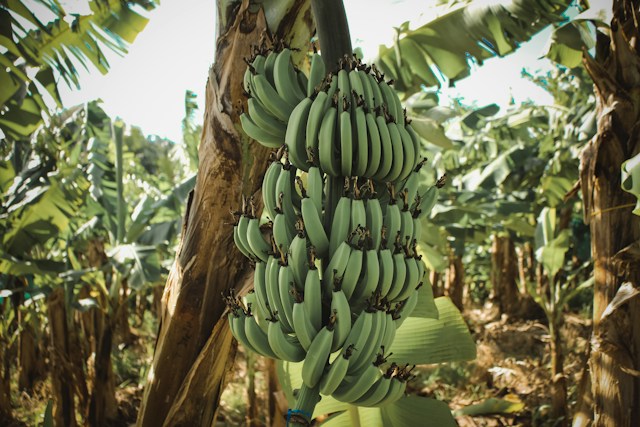Following recent natural disasters in Belize that have hit the sugar cane industry, farmers are turning to insurance coverage in order to safeguard their income and yield as well as protecting expensive equipment from being damaged or stolen.
Recently, the government has taken steps to promote sustainable agriculture and diversification of crops, encouraging nontraditional export crops such as sugarcane to decrease dependence on sugar and bananas as export commodities.
Protection from Natural Disasters and Crop Failures
Belize’s economy relies heavily on its agriculture sector. Unfortunately, however, it can be vulnerable to natural disasters and crop failure. Insurance provides crucial protection for farmers operating within this essential industry against income losses due to weather-related events, such as hurricanes, droughts or insect infestations; and covers costs associated with repairs or replacing equipment damaged during such incidents allowing them to continue producing for market without losing their profitability.
Belize’s agriculture sector is particularly susceptible to price fluctuations worldwide, making its farmers especially susceptible to volatility in oil prices and changing climate conditions that could threaten crops as well as primary sector activities like animal husbandry, forestry management, fishing and hospitality activities. Therefore, it is vital for them to offset some of their risk with insurance policies which protect against price volatility or any changing climatic conditions that could impact these activities.
Climate change will impact all sectors of the economy, but its greatest effects will likely be felt in agriculture due to its dependence on weather patterns. Analysis has demonstrated how production functions for several major crops in Belize are highly sensitive to changes in temperature and precipitation patterns and once certain thresholds have been crossed productivity declines rapidly.
Climate change will have far-reaching repercussions in Belize, including water resources. This will negatively impact agribusinesses and other businesses that rely on clean and fresh water as resources for their operations, so it is imperative that Belize develop a water management plan to guarantee continual access to this vital natural resource.
The Government of Belize is determined not to allow climate change to have detrimental effects on its economy, so they are taking measures to develop an extensive climate change mitigation strategy which includes setting up early warning systems, developing climate adaptive measures and planning for disasters related to climate change.
The Government of Belize is dedicated to improving both the quality and availability of land information. This will lead to improved efficiency and accuracy when managing land. Specifically, nine urban land titling programs have been initiated throughout Belize to address this need.
Protection from Climate Change
Belize’s agricultural sector is highly vulnerable to climate changes. A rise in global temperatures and shifts in precipitation patterns can have drastic repercussions for its production, exacerbating existing issues like soil degradation, nutrient depletion, reduced food supply and an increase in cereal prices – impacts that are compounded in developing nations with less adaptation capabilities compared to developed ones.
Climate change’s indirect impacts are felt throughout local populations. A rise in sea levels, for instance, can increase flood and storm surge frequency and intensity resulting in the loss of coastal infrastructure and homes; also contributing to coastal resource degradation and destruction and hastening ecosystem destruction, all with negative repercussions for communities who rely on them as sources of sustenance.
Insurance plays a pivotal role in protecting agriculture against the adverse effects of climate change. Crop insurance provides coverage for lost income or replanting costs following destruction to fields, making the difference between successful harvest and financial loss. Furthermore, it can provide farmers with financial relief should drought or extreme weather occur, or when weather extremes threaten crops.
Climate change adaptation strategies can protect Belize’s agricultural sector from negative climate impacts by expediting disaster recovery time and encouraging producers to switch to more resilient crops. Belize is particularly prone to natural disasters, such as hurricanes, which can bring catastrophic human and material losses; their adverse impact aggravated by many small farmers being uninsured.
The Ministry of Natural Resources and the Environment (MNRE) is responsible for managing renewable and nonrenewable natural resources, including land, as well as regulating environmental conditions in order to promote sustainable development. Their Department of Lands and Surveys oversees registration of ownership rights; valuation of lands so that lease charges or taxes may be determined; allotting public lands through lease contracts or individual sales agreements; mapping; mapmaking; land information management (LIM).
Protection from Market Price Fluctuations
Agriculture is an integral component of Belize’s economy, accounting for roughly one fifth of GDP. Unfortunately, however, agriculture can be vulnerable to climate change and market price fluctuations that have negative ramifications on production as well as food security in general.
Agriculture relies heavily on climate conditions for its success, which determine the productivity of crops and livestock as well as their competitiveness in international markets. Any change in weather could impact exports to the United States or lead to increased competition for Belizean products on international markets (figure 1).
To protect farmers from climate change, the government has implemented the Land Management Program III, with an aim of consolidating and expanding land administration services nationwide and improving their quality. This will give greater access to these services while simultaneously improving property rights and increasing land use efficiency for farmers.
Although significant progress has been made, issues still exist due to government efforts at redistribution of land. Such intervention has altered market dynamics and prices; for instance, an average tract sold by the government fetches five to seven times what an equivalent parcel in private sales might. As such, more efficient mechanisms should be put in place within the land market.
LMP III will play an instrumental role in the creation of these mechanisms. It will expand and upgrade rural land information systems across the entire country while also strengthening urban land data sources for greater precision in land valuation and tax collection, contributing towards more openness in the marketplace.
The Land Management Program will enable consolidation and expansion of land-use regulation services across the country and create a more dynamic land market by improving rural and urban land quality. Furthermore, this program will aid implementation of modern land administration systems in nine municipalities/districts that account for most transactions/collections of lands.
Protection from Equipment Damage
Belize’s tropical climate exposes it to natural disasters and crop failures that can severely impact production, so the agricultural sector needs access to financial support that helps offset income losses while keeping competitive in international markets – something insurance can provide them with.
Insurance provides Belize’s agriculture industry with valuable protection against damage to expensive equipment. A farm that loses an irrigation system or experiences pest infestation could face significant financial loss; insurance can help these small and mid-sized farms recover from such setbacks while remaining profitable.
Belizean government recognizes the value of insurance as an agricultural production tool and has taken steps to expand the availability of microinsurance policies in rural areas, especially among female farmers. These policies assist women farmers manage their assets more easily when financing agriculture operations using funds from assets like microinsurance policies; also providing relief when crops are damaged due to hurricanes or other environmental events.
Insurance provides another important service for agricultural producers: protecting against sudden shifts in market prices. When raw materials such as oil fluctuate drastically, farmers could experience severe income losses. Insurance can help agricultural producers cope with these fluctuations by shifting some of the risk to another party and offloading some of the burden onto them.
Insurance can bolster Belizean agricultural products’ international competitiveness by covering production and packaging costs to make these items more desirable to foreign buyers, improving food security and economic resilience, reducing dependence on imports while strengthening domestic economies.
Insurance carriers wishing to comply fully with Belizean regulations must fully understand their regulatory framework and market practices. Our Belize Insurance Governance Regulation Report offers insights into this country’s insurance market, with specific details about requirements and regulations regarding life, general, property, motor liability personal accident marine aviation transit insurance policies as well as any recent or forthcoming changes in these laws.




